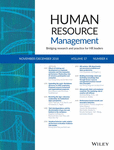
State Enforceability of Noncompete Agreements: Regulations that Stifle Productivity!
Noncompete agreements (also known as covenants not to compete [CNCs]) are frequently used by many businesses in an attempt to maintain their competitive advantage by safeguarding their human capital and the associated business secrets. Although the choice of whether to include CNCs in employment contracts is made by firms, the real extent of their restrictiveness is determined by the state laws. In this article, we explore the effect of state‐level CNC enforceability on firm productivity. We assert that an increase in state level CNC enforceability is detrimental to firm productivity, and this relationship becomes stronger as comparable job opportunities become more concentrated in a firm's home state. On the other hand, this negative relationship is weakened as employee compensation tends to become more long‐term oriented. Results based on hierarchical linear modeling analysis of 21,134 firm‐year observations for 3,027 unique firms supported all three hypotheses.





